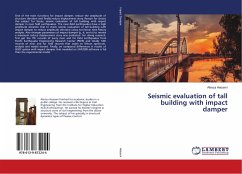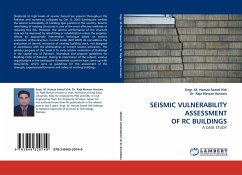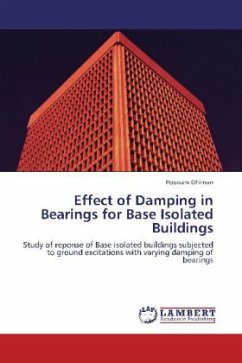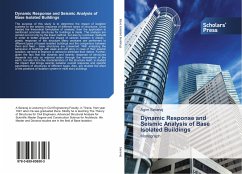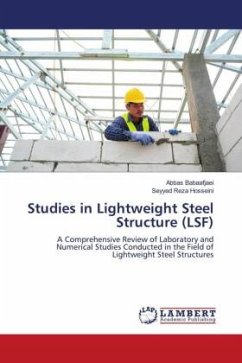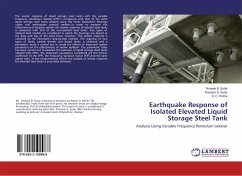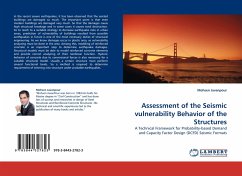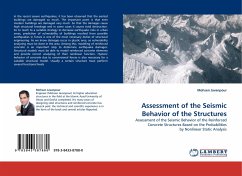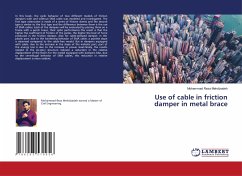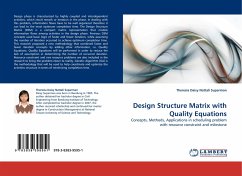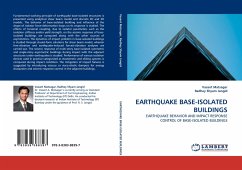
EARTHQUAKE BASE-ISOLATED BUILDINGS
EARTHQUAKE BEHAVIOR AND IMPACT RESPONSE CONTROL OF BASE-ISOLATED BUILDINGS
Versandkostenfrei!
Versandfertig in 6-10 Tagen
52,99 €
inkl. MwSt.

PAYBACK Punkte
26 °P sammeln!
Fundamental working principle of earthquake base-isolated structures is presented using analytical shear beam model and discrete 2D and 3D models. The behavior of base-isolated building and influence of the shape of isolator force-deformation loops on its response is studied. The effects of torsional coupling, due to isolator parameters such as the isolation stiffness and/or yield strength, on the seismic response of base-isolated buildings are computed along with the other sources of asymmetries. The dynamics of impact problem in base-isolated buildings is studied through closed-form solution...
Fundamental working principle of earthquake base-isolated structures is presented using analytical shear beam model and discrete 2D and 3D models. The behavior of base-isolated building and influence of the shape of isolator force-deformation loops on its response is studied. The effects of torsional coupling, due to isolator parameters such as the isolation stiffness and/or yield strength, on the seismic response of base-isolated buildings are computed along with the other sources of asymmetries. The dynamics of impact problem in base-isolated buildings is studied through closed-form solutions for shear beam model, wherein free-vibration and earthquake-induced forced-vibration analyses are carried out. The seismic response of multi-story base-isolated symmetric and single-story asymmetric buildings during impact with the adjacent structures under earthquakes is studied. Performance of various isolation devices used in practice categorized as elastomeric and sliding systems is compared during impact condition. The mitigation of impact failures is suggested by introducing viscous or visco-elastic dampers for energy dissipation and seismic response control in the adjacent buildings.



